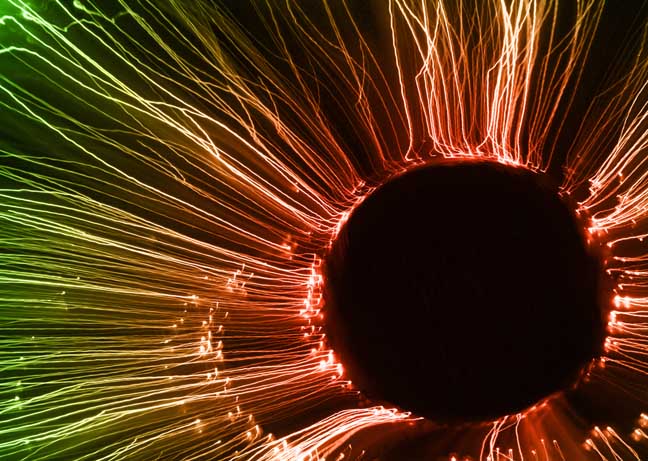opinion A new fighting cry is rising on the 21st century battlefield between the West and China: China is building an unbreakable national infrastructure based on quantum key distribution (QKD). The laws of physics are being tweaked against us, and we can't keep up, a think tank argues.

Thank you, Edward Snowden: You have made China a leader in quantum networks
read more
These are legitimate concerns. China’s investments and intentions in space and military expansion are very clear and plausible, as are its frustrations over its lack of parity in semiconductor technology. With every nation relying on data infrastructure and cybersecurity, making unbreakable encryption a national priority is superficially reasonable. QKD can certainly make channels uneavesdroppable. This is a clear and present danger, a danger that is less the devil in the details and more the hordes of Hades rampaging just below the headlines.
QKD is not an encryption technique, but rather a way to send a random key in a way that is guaranteed not to be intercepted. Random keys are a good gold standard for encryption, and when used properly, they can make your messages permanently unreadable, even as new technologies evolve.
All QKD does is transmit a copy of the key and the signal in case it is intercepted in transit, which is very clever, but in the same way that quantum computing is very clever – clever, but almost completely useless.
Quantum keys are only secure if they are never reused. That means you need as much key as you have data. A 10 MB file consumes 10 MB of key. A 10 MBps stream requires a 10 MBps keystream… QKD doubles the bandwidth needed for a connection. Or at least it would if it could. But it can't.
QKD creates pairs of entangled photons and then uses mathematics to determine if one of the pair has been observed in flight, so while it's hard enough to do on a large scale, the reality is much tougher than that.
The explanation of QKD involves a classic cryptographic threesome, with Alice sending a message to Bob and Eve monitoring it. In the story, it is Eve's observation of a photon that triggers the protection, just as in the quantum world, observing one of an entangled pair reveals the state of the other.
Yes, it does, but observation in the quantum sense doesn't mean a conscious observer. It means interaction with the rest of the universe. The same thing is screwing up quantum computing, but look how well it works.
In other words, the physical infrastructure of the fiber transmitting the key monitors it. There are ways to structure the photon stream to detect actual eavesdropping and natural noise, but the result is that it is much harder to use QKD over long lengths of fiber: the key bit rate is significantly reduced.
Ah, yes, the key bitrate. After all, you need a lot of key bits, so it's odd that there are so few actual numbers in the discussion of QKD. As of last year, it was revealed here that the world speed record for a QKD-protected key bitstream over 1,000 km of fiber was 10,000 times faster than the previous world record. Unfortunately, the previous world record was 0.0034 bits/second. The new record? 34 bits/second. You can type faster than that.
Of course, shorter is faster. Toshiba actually sells a QKD box that gives you 300 kbps with 10 dB path loss, which is better than 50 km of fiber. On the plus side, the system will work at 150 km, but on the downside, you'll need two fibers. You won't be able to type at this speed, but you can fill it with a decent audio stream.
This is no way to build a national infrastructure; you can barely connect two rooms. And what's worse, public key cryptography is just as secure in real life: you never transmit the private key in the first place; it works as fast as you like end-to-end, doesn't double the bandwidth, doesn't skimp on long fiber lengths, and doesn't require any extra hardware.
The reason QKD was thought to be a good idea was that old-fashioned public key cryptography was theoretically vulnerable to future quantum computing attacks, allowing nation states to store intercepted data until quantum computing arrived. But quantum computing never came. What we have is quantum-resistant public key cryptography, which is not vulnerable even if attacked.
The most effective use of QKD would be to create an impressive PowerPoint presentation and show it to funding agencies. Supposedly this has happened in China and it has made it all the way to the top. This is great news, because it is much harder to change entrenched ideas that have gone bad in a totally undemocratic regime. It is nearly impossible in the West. Think of the Ronald Reagan-era Star Wars missile defense system with its giant flying lasers and physics-defying Brilliant Pebbles.
At least we have a way to point and laugh until management changes its mind, or we change ours. China throws its best brains and billions of dollars at technology that never works as promised and will never be needed. That's more than a little comfort.®

